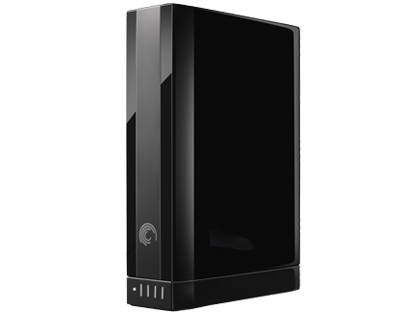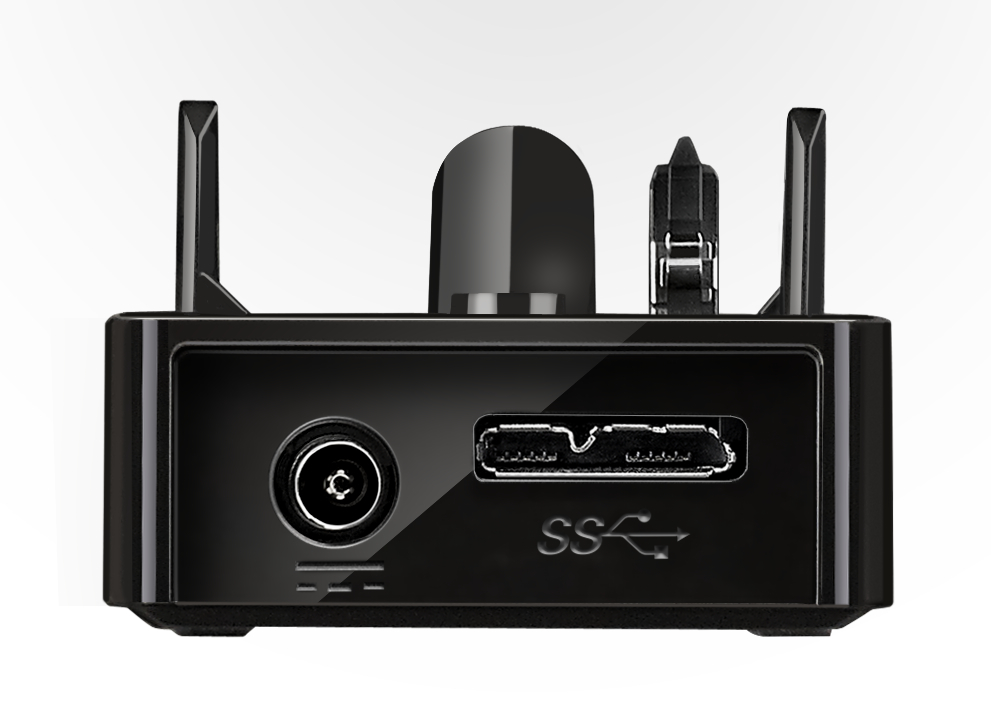Seagate Launching "Industry's First" 4TB HDD
Seagate has released a new GoFlex Desk external drive sporting a sleek new look and a fat 4 TB of storage. That's enough space to contain over 2,000 HD movies, claims the company.
Tuesday night Seagate said it's now shipping the industry's first 4 TB 3.5-inch HDD via the new GoFlex Desk 4TB external drive. In addition to its massive storage capacity, the HDD also showcases a new look for the GoFlex family, sporting a streamlined, industrial (and less round) design that "better reflects the aesthetic of today’s modern offices" while retaining a smaller footprint than its predecessors. The entire line of GoFlex Desk products will also adopt the new industrial design in the coming weeks, the company said.
"Yet another industry first for Seagate, we have reached a new high-capacity in the 3.5-inch hard drive form factor. At Seagate, we are committed to pushing the limits for our customers and will continue to adapt and innovate our products based on customer needs," said Patrick Connolly, vice president and general manager of Retail products for Seagate. "This latest GoFlex® Desk drive offering, with its new industry-leading capacity point, is a statement of our continued commitment to meet consumer needs."
Available soon online and at brick-and-mortar retailers for a meaty $249.99 USD, the 4 TB external drive will come pre-loaded with backup software (with 192-bit Triple DES encryption), a USB 2.0 or USB 3.0 adapter base with a lighted capacity gauge (seen left, and a 5-foot USB 2.0 or 3.0 cable. The overall size of the unit will be 6.22 x 4.88 x 1.73-inches.
Seagate said that the new 4 TB drive can be used on both the PC and Mac platforms without formatting, but reformatting to HFS+ requires the use of backup software for Mac or Time Machine software. The company also plans to release an additional GoFlex Desk for Mac external drive featuring both FireWire 800 and USB 2.0 by the end of the month, slated specifically for Apple stores.
System requirements include Windows 7, Windows Vista, Windows XP (32–bit & 64–bit) operating system or Mac OS X operating system 10.4.9 or higher, a USB 2.0 or 3.0 port.
Get Tom's Hardware's best news and in-depth reviews, straight to your inbox.

Kevin Parrish has over a decade of experience as a writer, editor, and product tester. His work focused on computer hardware, networking equipment, smartphones, tablets, gaming consoles, and other internet-connected devices. His work has appeared in Tom's Hardware, Tom's Guide, Maximum PC, Digital Trends, Android Authority, How-To Geek, Lifewire, and others.
-
jacobdrj Keep pushing capacity... I am glad the SSD revolution isn't stymieing HDD evolution...Reply -
afrobacon I feel like this capacity should have been available a while ago. Anyway, +1 to Seagate for being the first.Reply -
Camikazi hallsCost for this drive: $249.Cost of 2,000 HD movies (if each movie is $10): $20,000.If you buy them yes :P my guess is Seagate knows that most who fill this with 2,000 HD movies probably won't do it legally, but just won't come out and say it :)Reply -
MMXMonster julius 85Since when does a HD movie take up 2GB?When they are ripped from BluRay using x264 codec. Videos can be anywhere from 2gig up.Reply -
JasonAkkerman hallsCost for this drive: $249.Cost of 2,000 HD movies (if each movie is $10): $20,000.Reply
A Blu-Ray copy can be as much as 20+GB. You can compress the hell out of it and get it below 2GB. Maybe most people won't notice the difference on a (up to) 36" TV, but for some of use, we enjoy quality and do as little compression as possible. I make ISOs out of my DVDs, and haven't really found a solution I like for HD content, so I just use the discs.
Maybe the introduction of this 4TB drives will allow me to build that 20TB NAS I have been thinking about without breaking the bank. -
jacobdrj hallsCost for this drive: $249.Cost of 2,000 HD movies (if each movie is $10): $20,000.I wish I could sell my home-movies for 10 bux a pop...Reply
Think: Uncompressed, 15 minute long, videos of your kids lifetime accomplishments, like 1st steps and Bar Mitzvah... -
amk-aka-Phantom NEVER use a big HDD. Best is to split into smaller ones, preferrably with backups. I use a 500GB drive in my PC, and it only has installed programs and games on it - the movies/photos/music are on the external drives. (That way I also won't ever need any "cloud"... because my drives can be connected to any of my PCs, lol)Reply
Plus 4 TB would be a pain in the neck to fill up even with USB 3.0... and I don't even have 1 TB of data! :D

